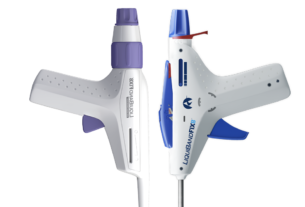Global Structural Heart Devices Market Overview
The global structural heart devices market is projected to expand at a compound annual growth rate (CAGR) of around 9% over the next five years, driven by a combination of demographic, clinical, and technological factors. The rising geriatric population, increasing incidence of valvular and congenital heart diseases, and continuous innovation in minimally invasive cardiac technologies are among the primary growth catalysts.
Request Sample Pages: https://meditechinsights.com/structural-heart-devices-market/request-sample/
Moreover, favorable reimbursement frameworks, broader regulatory approvals for transcatheter heart valves, and growing awareness of interventional treatment options have significantly expanded the patient pool eligible for these procedures. However, challenges such as high device costs, procedural complexity, and stringent regulatory pathways continue to limit widespread adoption in certain markets.
Report Highlights
Structural heart disease encompasses conditions that affect the heart’s valves, walls, chambers, or muscle tissue. These abnormalities may be congenital or acquired over time due to aging or comorbidities such as hypertension, diabetes, or coronary artery disease.
Devices used in structural heart interventions include heart valve replacement systems, occluders, annuloplasty rings, access and delivery systems, closure devices, sheaths, and balloon catheters, among others. These tools are central to interventional cardiology and are rapidly replacing traditional open-heart surgeries due to their less invasive nature and shorter recovery times.
Rising Burden of Valvular Heart Diseases Driving Market Expansion
The increasing prevalence of valvular heart diseases (VHDs)—including aortic stenosis, mitral regurgitation, and tricuspid valve disease—is one of the most critical drivers of market growth. Aging populations, sedentary lifestyles, and the rising incidence of cardiovascular comorbidities have led to a steady increase in patients requiring structural heart interventions.
Originally reserved for high-risk surgical candidates, transcatheter aortic valve replacement (TAVR) has now gained acceptance for intermediate and low-risk patients, driven by technological advances and robust clinical outcomes. The expansion of clinical indications and improved imaging modalities, such as echocardiography and CT scans, have also enhanced early diagnosis and intervention, contributing to higher procedural volumes worldwide.
Emerging Focus on Mitral and Tricuspid Regurgitation Treatments
Among various structural heart conditions, mitral and tricuspid regurgitation represent key growth areas with significant unmet clinical needs. Mitral regurgitation—where the mitral valve fails to close completely—remains one of the most prevalent heart valve diseases. Similarly, tricuspid regurgitation, although highly common, has historically been undertreated due to the lack of minimally invasive options.
Recent technological innovations are transforming this landscape. Devices like the MitraClip system and TriClip transcatheter repair system are pioneering new pathways for treating complex valve disorders without open-heart surgery. Moreover, the development of transcatheter mitral valve replacement (TMVR) systems is paving the way for next-generation interventions aimed at improving long-term patient outcomes.
Key recent developments include:
- May 2025: Edwards Lifesciences received FDA approval for its SAPIEN 3 TAVR platform, including SAPIEN 3 Ultra and Ultra RESILIA, to treat asymptomatic severe aortic stenosis patients.
- April 2024: Abbott gained FDA approval for the TriClip TEER system, the first minimally invasive solution for tricuspid valve repair.
- January 2022: InnovHeart s.r.l. raised $55 million in Series C funding to advance its Saturn Transcatheter Mitral Valve Replacement System for mitral valve disease.
Growth Strategies and Competitive Landscape
The structural heart devices market is characterized by both innovation-driven competition and strategic consolidation. Major players are leveraging acquisitions, partnerships, and new product launches to enhance their portfolios and geographic reach.
- July 2024: Edwards Lifesciences announced the acquisition of JenaValve Technology, strengthening its position in transcatheter treatments for aortic regurgitation.
- February 2022: Genesis MedTech Group acquired JC Medical (JCM), a company focused on transcatheter valve replacement solutions.
Key market players include Edwards Lifesciences Corporation, Abbott Laboratories, Boston Scientific Corporation, Medtronic plc, CryoLife Inc., and Lepu Medical Technology, among others. These companies continue to prioritize R&D investments in next-generation heart valve systems and AI-enabled diagnostic support to enhance patient outcomes.
Market Drivers
- Increasing prevalence of valvular and congenital heart diseases
- Rapidly growing elderly population susceptible to structural defects
- Strong shift toward minimally invasive transcatheter procedures (TAVR, TMVR)
- Technological advancements in biocompatible materials and device design
- Improved diagnostic accuracy with advanced imaging technologies
Emerging Opportunities
- Growing investment in transcatheter tricuspid and pulmonary valve systems
- Development of tissue-engineered and bioresorbable heart valves
- Expansion of reimbursement frameworks in developed markets
- Increasing accessibility in emerging economies with improving healthcare infrastructure
Conclusion
The structural heart devices market is entering a transformative phase marked by technological innovation, expanding patient eligibility, and strong clinical adoption. With growing focus on next-generation transcatheter solutions and early diagnosis through advanced imaging, the market is well-positioned for sustained growth. While cost and regulatory challenges remain, continuous R&D and favorable reimbursement trends are expected to accelerate global adoption in the years ahead.
Download Sample Copy: https://meditechinsights.com/structural-heart-devices-market/request-sample/
About Medi-Tech Insights
Medi-Tech Insights is a healthcare-focused business research & insights firm. Our clients include Fortune 500 companies, blue-chip investors & hyper-growth start-ups. We have completed 100+ projects in Digital Health, Healthcare IT, Medical Technology, Medical Devices & Pharma Services in the areas of market assessments, due diligence, competitive intelligence, market sizing and forecasting, pricing analysis & go-to-market strategy. Our methodology includes rigorous secondary research combined with deep-dive interviews with industry-leading CXO, VPs, and key demand/supply side decision-makers.

